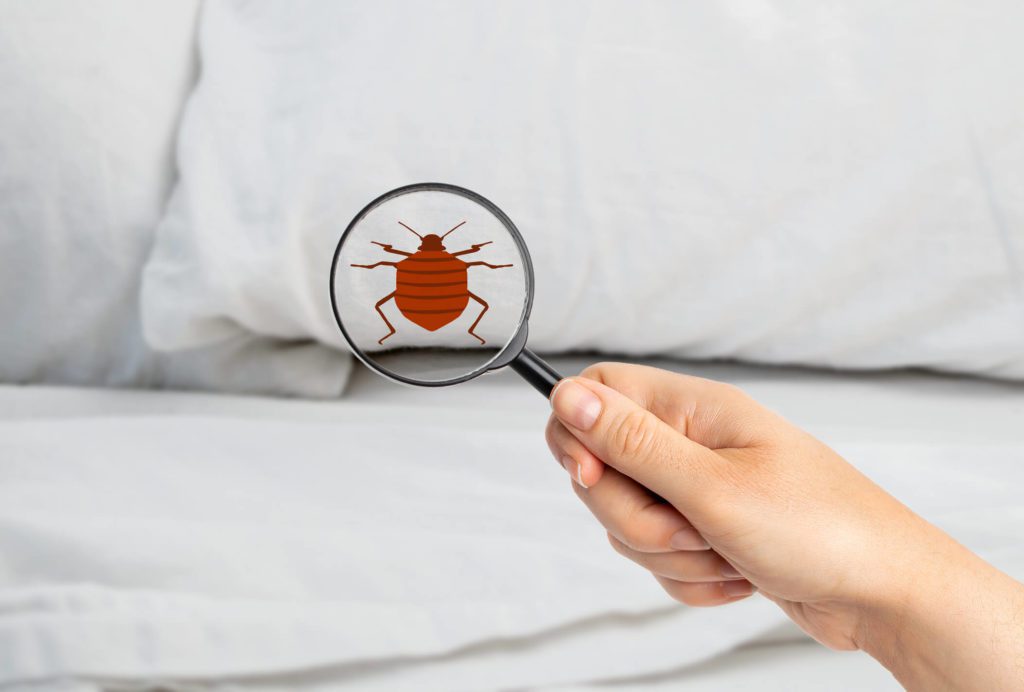Leading Kings Cincinnati Pest Control Services: Exterminator Experience
Leading Kings Cincinnati Pest Control Services: Exterminator Experience
Blog Article
Sorts Of Parasite Control: Which Approach Is Right for Your Invasion?
When encountered with a pest invasion, the option of a suitable approach for pest control is crucial in successfully managing the situation. By checking out the numerous types of bug control approaches available, individuals can make educated choices customized to their unique scenarios, making certain a more lasting and reliable result in bug obliteration.
Chemical Pest Control
Chemical insect control includes using artificial or normally acquired chemicals to take care of and eradicate pest populations efficiently. This technique is frequently made use of in farming, forestry, and household setups to combat a variety of insects, including weeds, pests, and rodents. Making use of chemical pesticides can give fast and targeted solutions to pest infestations, making it a popular choice for numerous people and services.
One of the essential advantages of chemical pest control is its ability to swiftly remove parasites, lowering the danger of damage to crops, building, and human health and wellness. By utilizing certain chemicals that target specific pests, this approach can properly manage infestations while minimizing injury to valuable microorganisms and the atmosphere when applied appropriately.
Nevertheless, the use of chemical parasite control additionally increases concerns concerning prospective adverse results on non-target types, water sources, and human wellness. It is important to follow safety and security guidelines, use chemicals properly, and consider different insect control methods to lessen these risks and make certain sustainable parasite administration techniques.
Biological Parasite Control
Biological bug control, additionally known as biocontrol, utilizes living organisms to handle and minimize pest populations naturally. By utilizing the bug's all-natural killers or virus, biological parasite control offers a sustainable and environmentally friendly solution to pest management.

Mechanical Parasite Control
Using hand-operated and physical methods to take care of insect populaces, mechanical insect control supplies an alternate approach that does not rely upon making use of living microorganisms or artificial chemicals. This approach involves using barriers, catches, or various other devices to literally deter or remove pests. By obstructing insect access points or establishing up catches to catch them, mechanical bug control can efficiently lower infestations without introducing chemicals right into the environment.
One typical instance of mechanical pest control is the use of mesh displays on doors and windows to avoid pests from entering buildings. This straightforward yet effective technique works as a physical obstacle, keeping insects out while enabling correct ventilation. Furthermore, gadgets like mousetraps, fly swatters, and ultrasonic repellents drop under the mechanical parasite control category.
While mechanical insect control techniques can be labor-intensive and call for normal monitoring and maintenance, they provide a eco pleasant and lasting solution for managing insect invasions. By integrating various mechanical methods, homeowner can produce a detailed bug control approach that decreases dependence on chemical pesticides.
Physical Parasite Control

Some common physical bug control methods consist of using barriers such as displays or internet to avoid bug entry, traps to record and eliminate parasites, and hand-picking to physically eliminate pests from plants or structures. In addition, techniques like warm treatments can be utilized to regulate pests like bed insects by elevating the temperature to degrees that are dangerous to the insects.
Physical bug control is specifically helpful in incorporated parasite management (IPM) methods, where numerous pest control methods are integrated for reliable pest administration while lessening the usage of chemicals. By utilizing physical insect control methods, people can properly address bug problems with minimal environmental impact.
Integrated Bug Administration
When applying physical parasite control methods as part of pest management techniques, Integrated Bug Administration (IPM) becomes a thorough approach that leverages various techniques to effectively control pest pest cleaning populations. IPM focuses on long-term termite specialist avoidance of parasites via a mix of organic, social, physical, and chemical devices tailored to particular insect problems. By integrating multiple control tactics, IPM aims to decrease the threats related to bugs while also lowering dependence on chemical options.
One secret aspect of IPM is the emphasis on surveillance and examining pest populaces to identify the most ideal control approaches. This positive method enables very early treatment and targeted techniques, resulting in more reliable bug administration. Additionally, IPM advertises eco-friendly practices by focusing on non-chemical control techniques and just utilizing chemicals as a last option.
Conclusion

By using the insect's all-natural killers or pathogens, organic parasite control supplies a ecologically pleasant and sustainable option to pest administration. - Kings pest control Cincinnati
Making use of hand-operated and physical approaches to manage insect populations, mechanical bug control uses an alternative method that does not rely on the use of living organisms or synthetic chemicals.An effective technique to managing insect populaces without counting on chemical or organic techniques involves the pest control removal usage of physical parasite control techniques.When executing physical insect control approaches as part of pest management methods, Integrated Bug Monitoring (IPM) emerges as an extensive technique that leverages various methods to effectively control pest populaces. Chemical parasite control entails the usage of pesticides, biological parasite control uses all-natural killers, mechanical parasite control involves physical obstacles, physical bug control consists of trapping or removing bugs, and integrated bug monitoring integrates multiple techniques for an alternative method to pest control.
Report this page